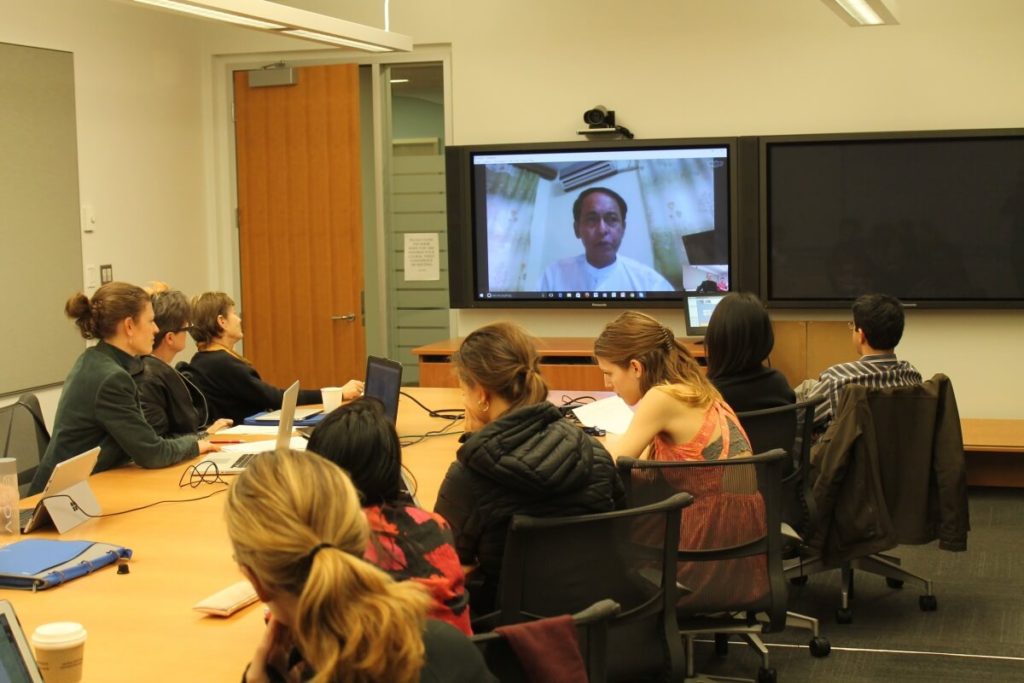
On February 14, 2017, the Allard Prize welcomed Dr. Khin Zaw Win, an activist and the Director of the Yangon-based capacity-building Tampadipa Institute, to Allard Hall to speak about the challenge of democratic change in Myanmar via videoconference. In attendance were representatives from the UBC Institute of Asian Research; Peter A. Allard School of Law students, including the International Justice and Human Rights Clinic; members of Vancouver-based Burmese communities, and members of the public.
Khin Zaw Win has worked on Myanmar’s political and social conflicts for decades. Since the 1988 Uprising, which included protests and civil unrest against the military regime of the Burma Socialist Programme Party, he has been fully immersed in Myanmar’s transitions from the longest running civil war to a durable peace; authoritarianism to democracy; a centralized, majoritarian system of governance to greater devolution of power and recognition of ethnic aspirations; and an ailing hybrid command/market economy to a healthy, open one. Because of this work, he was unjustly held in Myanmar as a political prisoner from 1994 to 2005.
After his release, Khin Zaw Win witnessed a deteriorating humanitarian situation brought on by mismanagement within the country and punitive measures from abroad. Following the 1988 Uprising and the subsequent military coup, Myanmar’s economy was partially opened. Foreign investment in the extractive industries led to a growing class of crony capitalists, who accumulated wealth and political influence through unfettered extraction of natural resources. Khin Zaw Win explained that the nation’s benefits are heavily skewed in favour of those with wealth and power, with little attention devoted to growing inequities, and called on the current government, Aung San Suu Kyi’s National League for Democracy, to prioritize equitable social redistribution of wealth.
Khin Zaw Win also addressed the resurgence of Buddhist-tinged nationalism. In 2016, extremist Buddhists and military forces, in response to attacks on border police camps by unidentified insurgents, cracked down on the Rohingya people in the western region of Rakhine State. The crackdown involved extreme human rights violations, including alleged gang rapes and extrajudicial killings. Many human rights groups describe the Rohingya people as one of the most persecuted minorities in the world and have criticized Aung San Suu Kyi for remaining silent on the issue. Khin Zaw Win explained, “the Rohingya issue presents a test for Myanmar as a democratic society, a Buddhist society and a humane society.” Rather than address abuse against the Rohingya, Myanmar’s political leaders are engrossed with amending the constitution and winning elections.
The talk concluded with discussions on topics ranging from land confiscations to what politicians could do to bring about democratic change in Myanmar.


